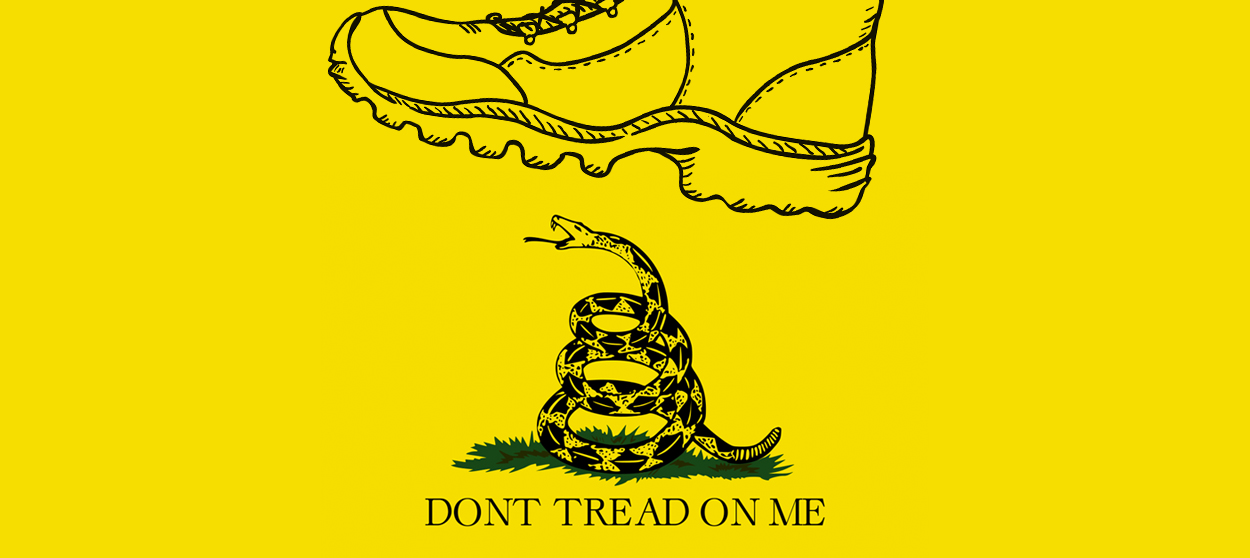Are libertarian Republicans misreading the political climate?
Why they should proceed into 2020 with caution


A free daily email with the biggest news stories of the day – and the best features from TheWeek.com
You are now subscribed
Your newsletter sign-up was successful
All it took was a noncommittal response to generate a little 2020 buzz. "I would never rule anything out," Rep. Justin Amash (R-Mich.) told CNN's Jake Tapper earlier this month when asked if he would run for president as a libertarian. "That's not on my radar right now, but I think that it is important that we have someone in there who is presenting a vision for America that is different from what these two parties are presenting." Far from a declaration of candidacy, this was not a Shermanesque statement, either. "Sounds like a platform," Tapper replied when Amash talked about the principles that unite Americans.
Despite President Trump's tax cuts, deregulation, and even criminal justice reform, it's generally been a frustrating time for libertarian Republicans like Amash. But if Democrats take the White House in 2020, Democratic overreach — and the backlash it triggers — will once again present libertarians with an opportunity to lead the GOP. Can they convince the party to follow?
Trump isn't a limited-government true believer, and organizations from the Tea Party (which helped elect Amash) to the House Freedom Caucus (to which Amash belongs) seem to be filled with people who are more interested in rallying behind the president than cutting the federal government down to its constitutional size. Entitlement reform is out; tariffs and trade wars are in. The discretionary spending cuts in Trump's budget are dead on arrival; the deficit — once again nearing $1 trillion, this time under the GOP and a growing economy — is very alive.
The Week
Escape your echo chamber. Get the facts behind the news, plus analysis from multiple perspectives.

Sign up for The Week's Free Newsletters
From our morning news briefing to a weekly Good News Newsletter, get the best of The Week delivered directly to your inbox.
From our morning news briefing to a weekly Good News Newsletter, get the best of The Week delivered directly to your inbox.
The Trump era has been especially frustrating for Amash. He's not drawn to nationalism or populism, much less partisan tribalism. He didn't like the appointment of Brett Kavanaugh to the Supreme Court or either of Trump's attorneys general. He doesn't see Trump as having made much progress ending the country's wars.
"When some libertarians talk about the great accomplishments we're seeing on foreign policy, I don't know what they're talking about," Amash told The Washington Post last year. "Reaching out to these guys is one thing, but you have to move down the court. [Trump] actually made it harder for us to have a good relationship with Russia."
The Post story was about how Amash was "marooned" in Congress. A more recent piece on CNN's website called him "the loneliest Republican" in the legislative branch. Thus the speculation he'll leave to take a flier on the Libertarian Party nomination in 2020.
As gloomy as things now seem, another "libertarian moment" — the last one was just four or five years ago — could be on the horizon. Democrats no longer believe that the era of big government is over, as Bill Clinton professed. They increasingly want to expand Medicare to Americans under the age of 65, return to tax rates unseen since Ronald Reagan came to Washington, disrupt private health insurance more than ObamaCare did, and grow government in ways that imposes costs on middle-class voters as well as offer them benefits. And the Green New Deal will legitimately require trillions of dollars in new federal expenditures at a time when it is not clear how to responsibly keep the promises made by our existing welfare state.
A free daily email with the biggest news stories of the day – and the best features from TheWeek.com
If — when — the Democrats retake the White House, Republicans are sure to once again get tough on fiscal conservatism (even if their overall motivation is more complicated), as they did in 1994 and 2010. Deficits will matter. But the GOP's government-cutting zeal usually fizzles out by the presidential election. Sometimes the revival of Republican political fortunes has faded by that time, too. That's a problem for strong fiscal conservatives like Amash. Trying to avoid the same fate as the Tea Party, or Newt Gingrich's Congresses, is probably a more productive use of one's time than vying with John McAfee for Libertarian Party presidential bragging rights.
As a libertarian, Gary Johnson was a useful safety valve for voters who found their 2016 and 2020 presidential options unpalatable. But as a Republican, he was the two-term governor of New Mexico. As a libertarian, Ron Paul finished a very distant third in the 1988 race for the White House. As a Republican, he served 12 terms in Congress and even his losing presidential campaigns had much more influence.
Still, there are undeniable challenges. Republicans now depend on the votes of people collecting Social Security and Medicare, receiving farm subsidies, and benefiting from Pentagon spending. Even some veterans of the Ron Paul campaign are questioning whether limited government is adequate to address the country's problems. So rather than exhorting Republicans to be more principled and less partisan, libertarians and constitutional conservatives would perhaps do well to grapple with the shallowness of their political appeal.
W. James Antle III is the politics editor of the Washington Examiner, the former editor of The American Conservative, and author of Devouring Freedom: Can Big Government Ever Be Stopped?.
